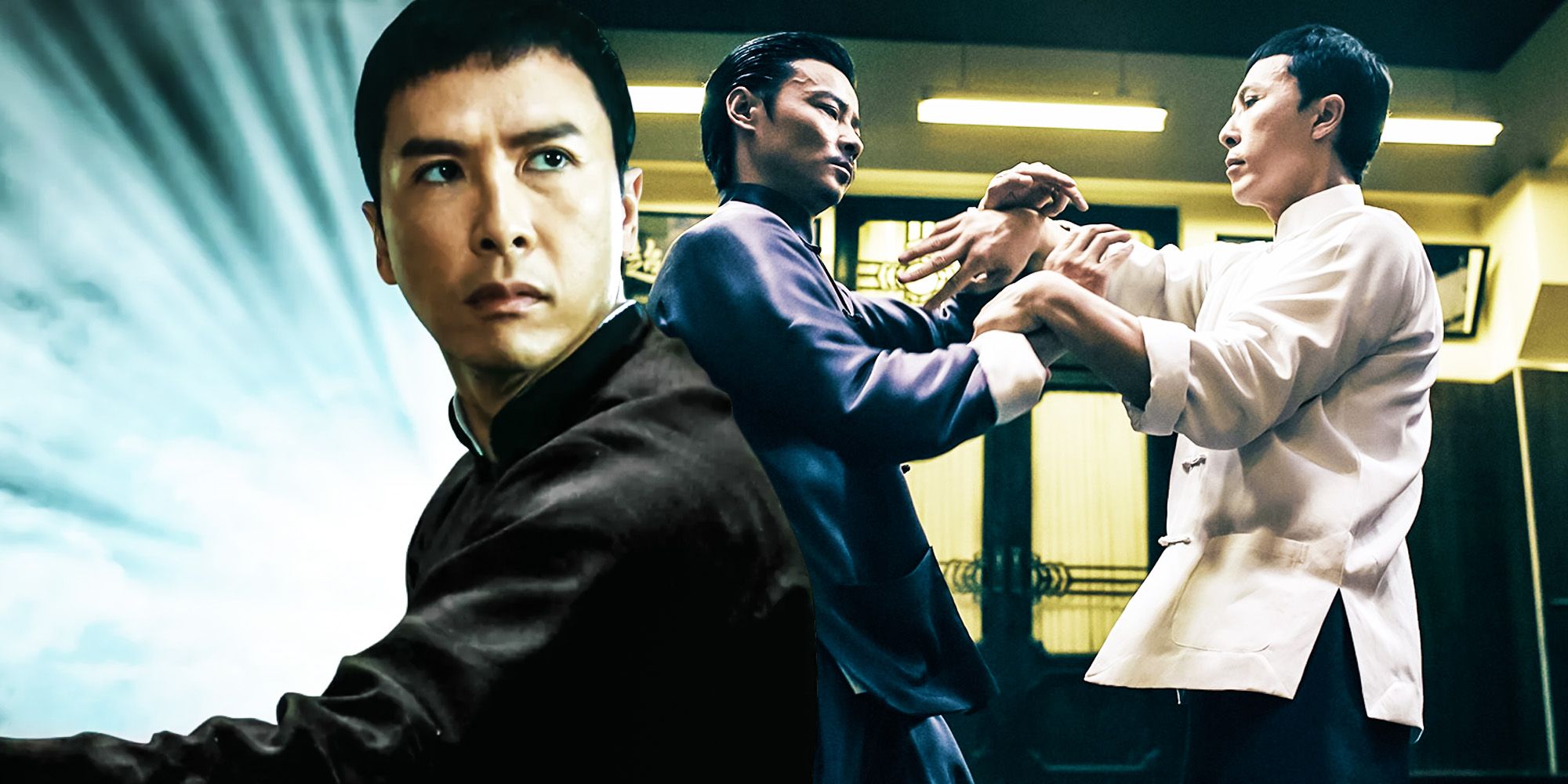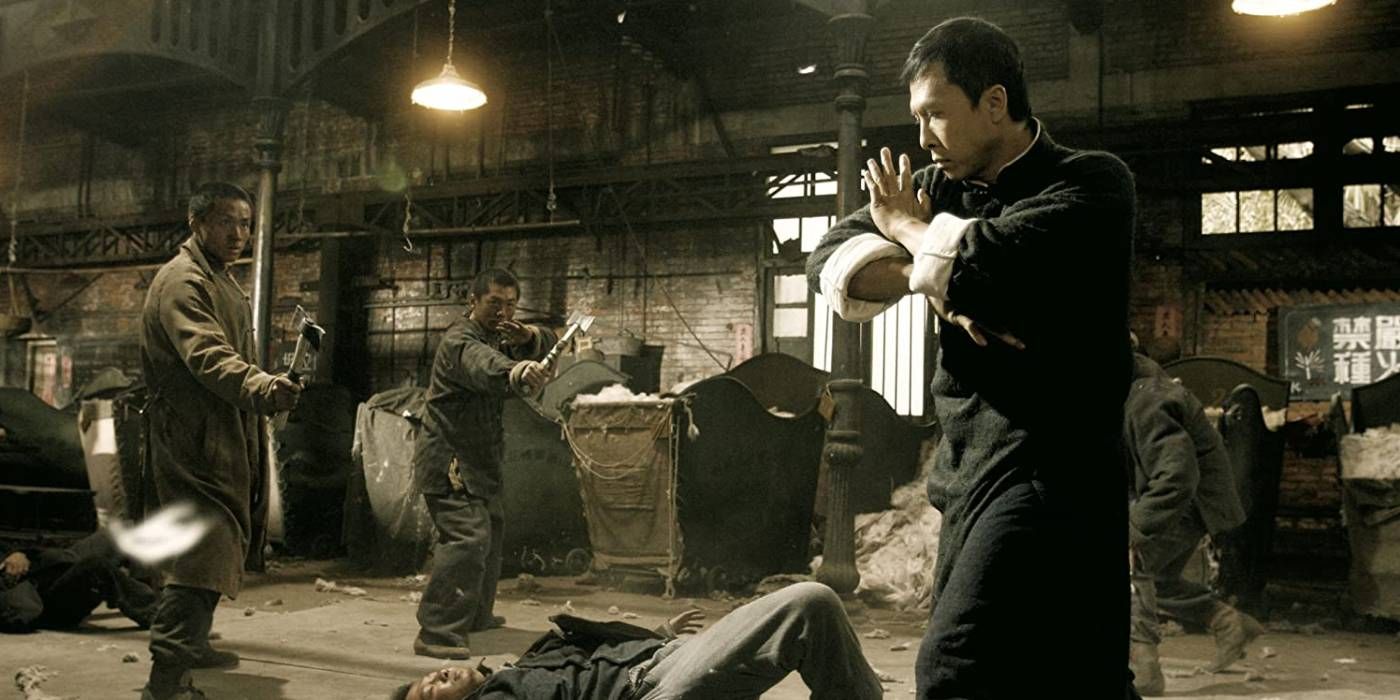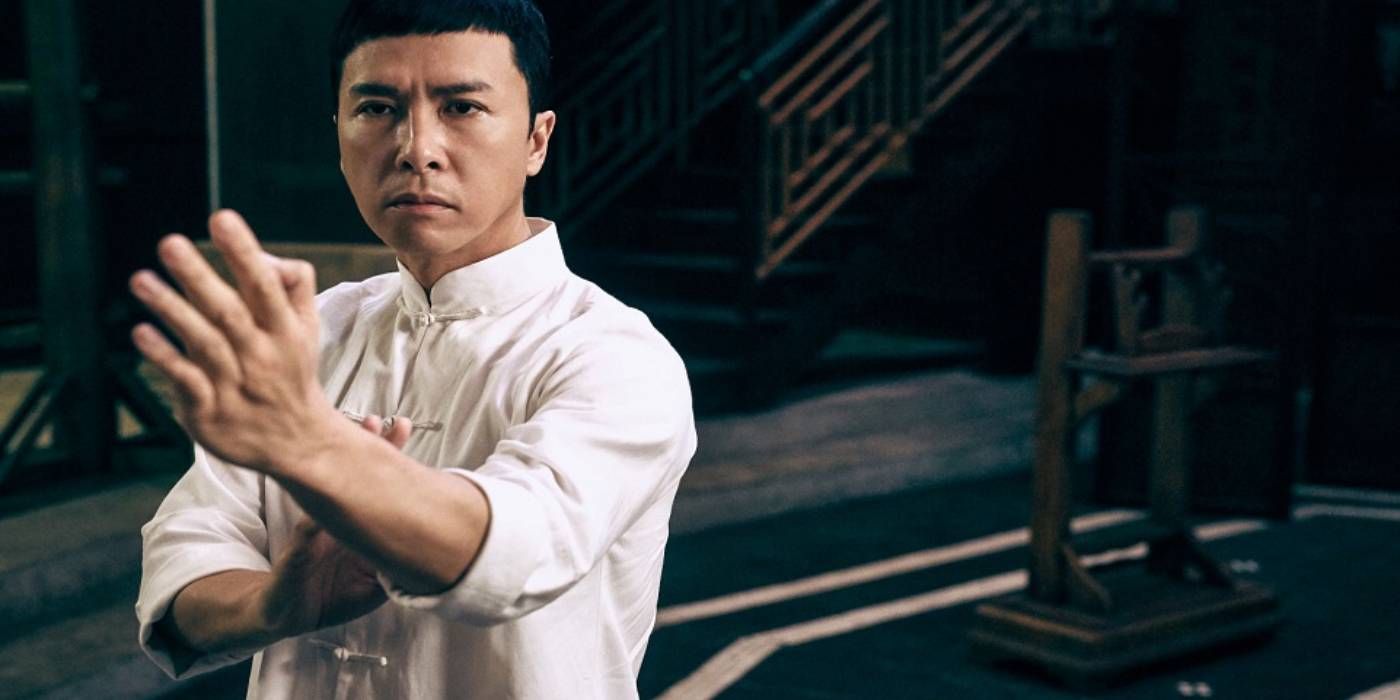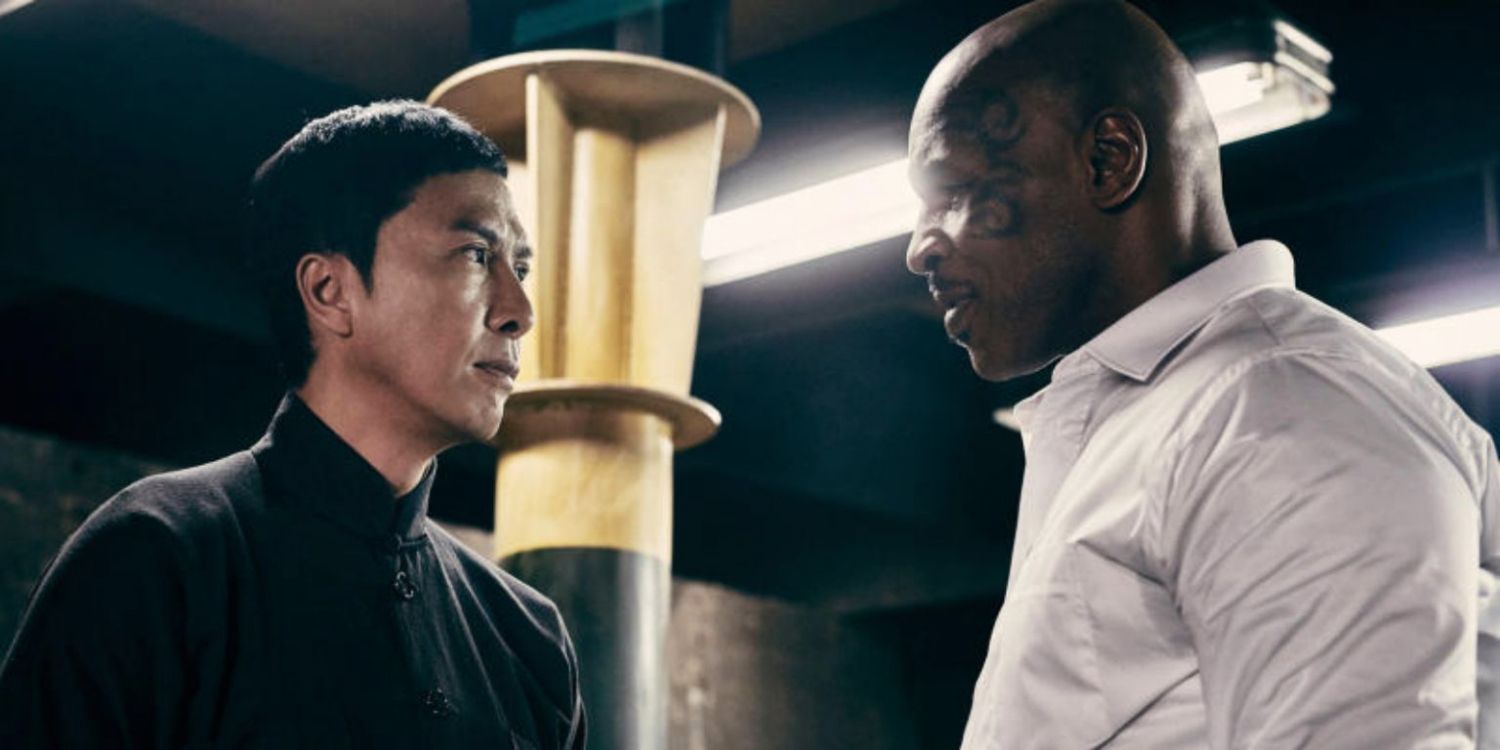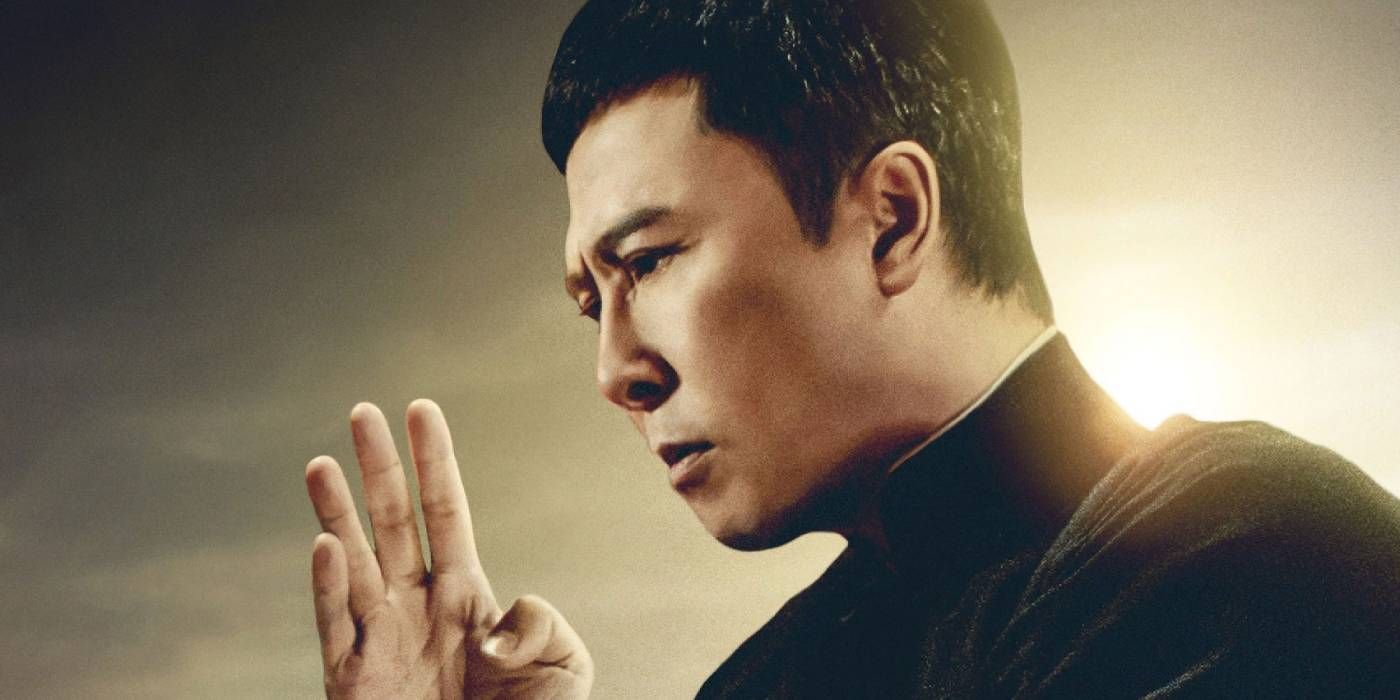Donnie Yen's Ip Man series carries a different theme with each movie, and it exemplifies them in numerous martial arts sequences. The Ip Man movie franchise began in 2008, with Yen portraying the renowned mentor of the legendary Bruce Lee and taking up Ip Man's martial art of Wing Chun specifically for the role. After portraying the titular Ip Man four times, Donnie Yen has made Wing Chun more popular than ever around the world - owed in no small part to the depth of themes that each Ip Man movie tackles.
Aside from being the ultimate showcase of Wing Chun, the Ip Man movies also explore its protagonists' relationship with Bruce Lee. While only mentioned at the end of the first film, Bruce gradually becomes more of a presence through the remainder of the series. Lee's inclusion in later Ip Man entries only serves to bolster the emotional nuance of the franchise, with Ip Man attempting to balance mentoring his son with teaching his mercurial protege.
As Donnie Yen himself explained in an interview for Ip Man 3, the first three movies respectively are based on themes of "survival," "making a living," and "life." 2019's Ip Man 4: The Finale, in which Bruce Lee was the most prominent, would later serve as the concluding chapter of the series and focus on fighting bigotry. Here's how each of these themes plays into the overarching Ip Man story via the four movies' memorable fight scenes.
Ip Man's Theme Of Survival
In Ip Man, Donnie Yen's titular hero lives a comfortable life with his wife and son. While he cultivates a reputation throughout Foshan as a formidable and wise Wing Chun master, Jin Shanzhao (Fan Siu-wong) takes a different strategy. Determined to free himself forever from poverty and hunger, Jin aims to take down every rival kung fu master in Foshan to establish himself and his school with no equals. Ip Man is the one opponent he can't overcome, but similar motivations do not drive him. Despite training the cotton factory workers in Wing Chun to defend themselves from Jin's gang's formidable martial arts skills, Ip Man insists that, contrary to Jin's perspective, "No one wants to chase you away."
The economic effects of Japan's invasion of China also put Ip Man and his family into their own tough situation. With his wealth depleted, Ip Man takes up work in a coal mine to provide for his family. Meanwhile, Japanese General Miura (Hiroyuki Ikeuchi) mocks the dire straits that the people of China face, setting up fights with local martial artists and promising them a bag of rice if they are victorious. Ip Man, driven to anger by the death of his friend Lin (Xing Yu) in one such match, single-handedly defeats ten Cobra Kai-level karate exponents in a fight. Declining the promised rice bag, Ip Man begins to inspire hope in the people of Foshan, culminating in his eventual defeat of Miura in a public duel.
In both these sequences and Ip Man's fight with Jin, the film showcases its theme of survival, showing both men fighting dire circumstances and daunting odds. Jin's battles teach him an important lesson that his desperation had made him into a bully over a survivor. Meanwhile, Ip Man overcomes being outnumbered and economically tarnished. With Ip Man nearly killed in retaliation for his victory over General Miura, he and his family are forced to move to Hong Kong. This itself is a thematic tie-in to the movie's survival theme, with Ip Man living to fight another day in his exile.
Ip Man 2's Theme Of Making A Living
Ip Man 2 opens like a Bruce Lee movie, with the Wing Chun master's efforts to establish a Wing Chun school on a Hong Kong rooftop. Eventually, Wong Leung (Huang Xiaoming), based on Ip Man's fellow teacher Wong Shun-leung, arrives to test Ip Man's skills in Wing Chun. Ip Man's win eventually leads to his Wing Chun school's beginnings in Hong Kong. The early training and sparring sequences of Ip Man 2 capture the film's theme of making a living. Arriving in Hong Kong, Ip Man and his family have to start over completely, and his skills in Wing Chun give him a tool to get them back on their feet in establishing his academy of martial arts. However, Ip Man learns that prospective kung fu teachers in Hong Kong must prove themselves to Hong Kong's union of kung fu schools.
Ip Man defeats two other teachers and ties with a third, Hung Chun-nam, played by Bruce Lee's Enter the Dragon opponent Sammo Hung. Despite this, Ip Man and his students still deal with rivals from other schools and British law enforcement over Hong Kong. Eventually making his peace with Hung, Hong Kong's kung fu community faces a new challenge with the arrival of Taylor "The Twister" Milos (Darren Shahlavi) at an exhibition event. Determined to win back the honor of Hong Kong from the boxer's insults, Hung ultimately dies in the ring against Twister, with Ip Man later defeating him in his own match. In Ip Man 2, the core theme is establishing a successful living, whether in martial arts or anything else. This also brings over the former villain of Ip Man, Jin Shanzhao, who reformed himself into a more stalwart ally of Ip Man's after his earlier misguided methods of establishing his own school.
Ip Man 3's Theme Of Life
By Ip Man 3, the Wing Chun sifu has firmly solidified his place in the thriving martial arts community of Hong Kong. With Ip Man and his wife, Cheung Wing-sing (Lynn Hung), raising their young son Ip Ching (Jim Liu), he has his second meeting with a headstrong youth named Bruce Lee (Danny Chan). The two had previously met at the end of Ip Man 2, with Ip Man instructing Bruce to return when he was older, as Bruce shows great potential to Ip Man. Recognizing that Bruce is well on his way to becoming a tremendous martial artist, Ip Man leaves an unspoken but open-ended invite for Bruce to return. This subtly illustrates the theme of life in Ip Man 3. In a seemingly innocuous meeting and demonstration of skill by a prospective student, neither Ip Man nor his future student Bruce Lee can immediately see the legacy each will leave on the world in the coming years. It's simply another day of training for both of them, but any seemingly ordinary day in life can have great significance in the future (the fictionalized nature of Ip Man and Bruce's relationship in the series notwithstanding).
Ip Man also meets another Wing Chun master in Hong Kong named Cheung Tin-chi (Max Zhang). The two become allies against crime boss Ma King-sang (Patrick Tam). With Ip Man also facing off with aggressive property developer Frank (Mike Tyson), he receives heartbreaking news about Wing-sing's cancer diagnosis. Meanwhile, Tin-chi has adopted similar tactics as Jin Shanzhao once did, challenging local kung fu masters to eliminate his competition in Hong Kong. With the fame Ip Man has throughout the city for his deeds, and as an exponent of Wing Chun kung fu, Tin-chi's envy overtakes him, leaving him determined to defeat Ip Man but ultimately losing. With a refreshed perspective, Tin-chi abandons his efforts to outclass other kung fu masters to raise his young son, leading to their relationship in the 2018 spin-off Master Z: Ip Man Legacy. With the challenges of Ip Man 3 some of the most grounded of the series, including Wing-sing's passing, Ip Man 3's theme is one of navigating life's unexpected events. Tin-chi also learns to re-orient his focus in life from his fight with Ip Man, realizing he was fighting for the wrong reasons and doing serious damage to his and his son's lives.
Ip Man 4's Theme Of Fighting Bigotry
By 1964, Ip Man's influence has begun to spread internationally. In Ip Man 4: The Finale, the wise sifu's pupil Bruce Lee has established himself as a rising martial arts legend in San Francisco. After a fight, his son Ip Ching is expelled from school, leading Ip Man to seek educational venues for Ip Ching in San Francisco. Needing a letter of recommendation from the Chinese Consolidated Benevolent Association, Ip Man has difficulty obtaining one for his differing perspectives on kung fu. Wan Zhong-hua (Wu Yue), a Tai Chi teacher and president of the group, wants Ip Man to talk Bruce out of teaching kung fu to non-Chinese students. Ip Man refuses to do so, believing that kung fu should be shared with all people, similar to Bruce Lee's teachings himself. Wan's motivation is driven by the bigotry the local Chinese community faces in San Francisco, including the bullying experienced by his own daughter Yonah (Vanda Margraf). Wan and Ip Man ultimately come to blows over the situation, which captures the anti-racism theme of Ip Man 4. Both Wan and Ip Man recognize the prejudice faced by Chinese people, but their philosophies on how best to oppose it are where they diverge.
Meanwhile, one of Bruce's students, Hartman Wu (Vanness Wu), attempts to persuade his superiors in the U.S. Marines to incorporate Wing Chun into their hand-to-hand combat curriculum. Gunnery Sergeant and karate practitioner Barton Geddes (Scott Adkins) has nothing but disdain for Chinese people and, in contrast to Bruce's philosophy of martial arts, believes one fighting style can trump all others. Geddes also takes every opportunity to bully and humiliate Wu and local Chinese people. When his associate Colin Frater (Chris Collins) is defeated by Ip Man at San Francisco's Mid-Autumn Festival, Geddes goes into a frenzy of terrorizing and beating up several local kung fu masters, including Wan. Ip Man finally arrives and defeats Geddes in a martial arts duel, fighting back against racism and bigotry. In leading by example, Ip Man overpowers the discrimination San Francisco's Chinese community faces, while Wu successfully persuades the Marines to integrate Wing Chun into their training. As a result, the Ip Man movies stand as a time capsule of its hero's legacy in the martial arts world, and while the films themselves are heavily fictionalized, the essence of Ip Man as a man who inspired people with his teachings holds true today.

